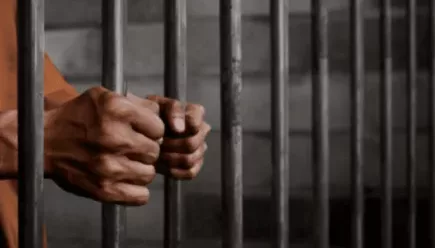A man who was employed as a cleaner at a Limpopo residence has been sentenced to life imprisonment for raping his employer’s eight-year-old child.
Shinono Sibande was found guilty and sentenced by the Groblersdal regional court on Thursday.
He raped the girl after he was hired by her family to erect a wall and clean the yard.
According to the National Prosecuting Authority (NPA), the incident took place in September 2020 at the victim’s homestead in Tafelkop.
The victim was left alone by the mother while watching TV when the 44-year-old Sibande entered the house and found the girl sleeping on a sofa.
The convicted rapist proceeded to undress the child and raped her.
Girl threatened
After the violation, Sibande threatened to kill the child if she told anyone about the rape, and the child did as she was ordered.
A year later, according to the NPA, the victim’s mother noticed a change in the behaviour of her child and her loss of weight.
NPA spokesperson Mashudu Malabi-Dzhangi said the mother of the victim took the child to a local clinic and she was referred to the hospital, where it was confirmed by a doctor that the minor had been raped.
“It was then that the victim reported to the mother about the rape and the matter was reported to police,” said Malabi-Dzhangi.
State prosecutor Sifiso Miya led the evidence of the victim and her mother to prove the case for the state.
Cleaner broke trust
Miya submitted that there were no substantial and compelling circumstances for the court to deviate from the prescribed minimum sentence.
“The accused was placed in a position of trust and he broke such trust by violating the victim,” said Miya.
The court sentenced Sibande to life behind bars, and ordered that his name be added in the register for sexual offenders.
According to the 2019/2020 annual crime statistics presented by the SA Police Service at the time, more than 24 000 children were sexually assaulted in South Africa during that period.
“One in five children are victims of sexual abuse, representing 19.8%, compared to a global average of 18% for girls and 8% for boys,” the statistics showed at the time.



